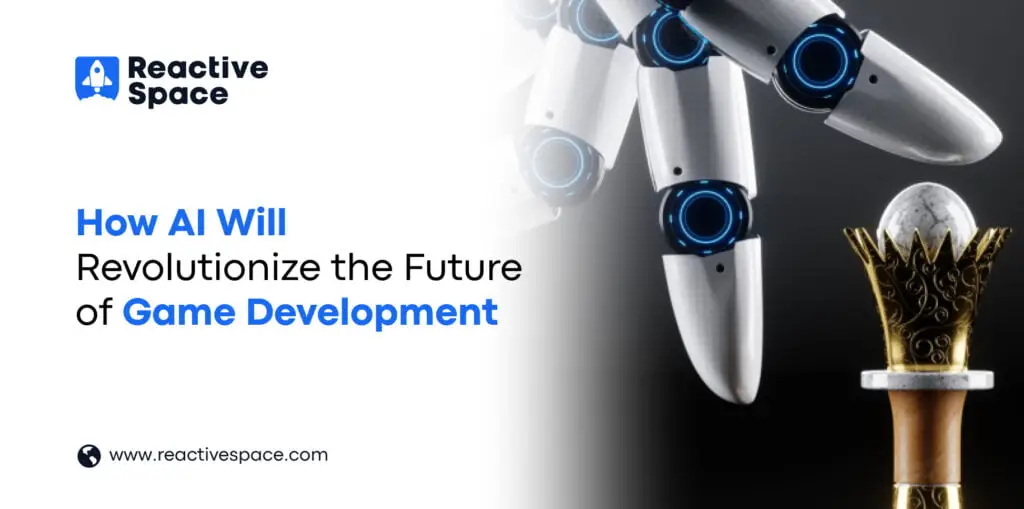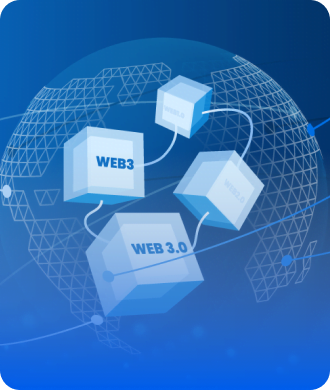
Artificial Intelligence (AI) is a big step forward in technology. It is not just affecting different industries it is also going to have a big impact on making games. AI is not just making current ways of making games better it is also creating new chances for game makers, players, and everyone involved. Let’s see how AI is going to change. And how will games be made in the future?
Understanding of AI (Artificial Intelligence)
Artificial Intelligence (AI) refers to machines and computers that can learn and solve problems like humans. It involves algorithms and software designed to copy human intelligence, such as learning, reasoning, and problem-solving. AI is used in various fields, from predicting weather patterns to powering virtual assistants like Siri and Alexa. Its potential to automate tasks and improve decision-making continues to grow rapidly in today’s technological landscape.
What is Game Development?
Game development is the process of creating video games. It involves designing the concept and rules of the game, creating the game’s artwork and graphics, programming the game mechanics and interactions, testing and debugging to ensure the game runs smoothly, and finally releasing and updating the game based on player feedback. Game development typically requires a team of professionals including game designers, artists, programmers, and testers, working together to bring the game from idea to playable product.
AI change Game Development
Following are the steps of how AI changed Game App Development.
1. Procedural Content Generation (PCG)
AI algorithms are really good at creating a lot of game content automatically. This is a big deal for developers because making game levels, environments, textures, and stories usually takes a long time and needs a lot of work. AI-powered procedural content generation helps developers speed up these tasks and make them more creative and varied. Games like “No Man’s Sky” show how AI can make huge, different worlds without developers having to do everything by hand.
2. Realistic NPC Behaviour
Non-Player Characters (NPCs) are crucial for making games feel real. AI helps NPCs act more like real people by adjusting to what players do. With machine learning, NPCs can learn from players and get better at responding. This makes games more realistic and engaging.
3. Enhanced Game Testing and Bug Detection
Quality assurance is very important in game development, and AI is changing this by automating testing and finding bugs. AI can simulate many gameplay scenarios, spotting problems that human testers might miss. This leads to stronger, more stable games and lets developers spend more time on creativity and new ideas instead of manual testing.
4. Personalized Gaming Experiences
AI-powered analytics can collect and analyze player data in real time. This helps developers personalize the game based on each player’s preferences, behaviors, and skill levels. AI can adjust difficulty levels and suggest content that suits the player, making the game more enjoyable and engaging by offering experiences that feel custom-made.
5. Advanced Graphics and Visuals
Creating realistic graphics and visuals has always required a lot of computing power. AI techniques like neural networks and deep learning are now used to make this process more efficient, reduce delays, and improve visual quality. This leads to more immersive game environments, lifelike character animations, and amazing visual effects, pushing the limits of what can be done in gaming.
6. Game Design Assistance
AI tools are increasingly helping game designers with brainstorming, prototyping, and creating art. These tools can look at game data, market trends, and player feedback to give useful insights for making decisions during development. By making design processes more efficient and encouraging creativity, AI helps developers innovate and experiment more effectively.
7. Emerging Game Genres and Experiences
AI is creating new game genres and experiences by using its unique abilities. This includes AI-generated story-driven games and interactive storytelling that changes based on player choices. Games like “Detroit: Become Human” show how AI can influence narrative outcomes and give players meaningful choices that affect the storyline. The possibilities are growing quickly.
The Future of AI in Game Development
As AI technologies keep advancing, they will become even more integrated and transformative in game development. Developers will use AI not only to make production processes more efficient but also to push creative limits, deliver more immersive experiences, and engage players in new and exciting ways.
Conclusion
AI will greatly change how games are made. It improves current methods and creates new chances for innovation. AI helps in many ways, like creating game content, making characters act more real, enhancing graphics, and personalizing the game for each player. It also automates testing and helps with game design, allowing developers to be more creative. As AI continues to advance, it will become even more important, helping developers make more immersive and engaging games, and pushing the limits of what’s possible.
Transform Your Game Development with AI
Unlock new possibilities with AI-powered game development. Enhance creativity, efficiency, and player engagement with our cutting-edge AI solutions.
Get Started Today


